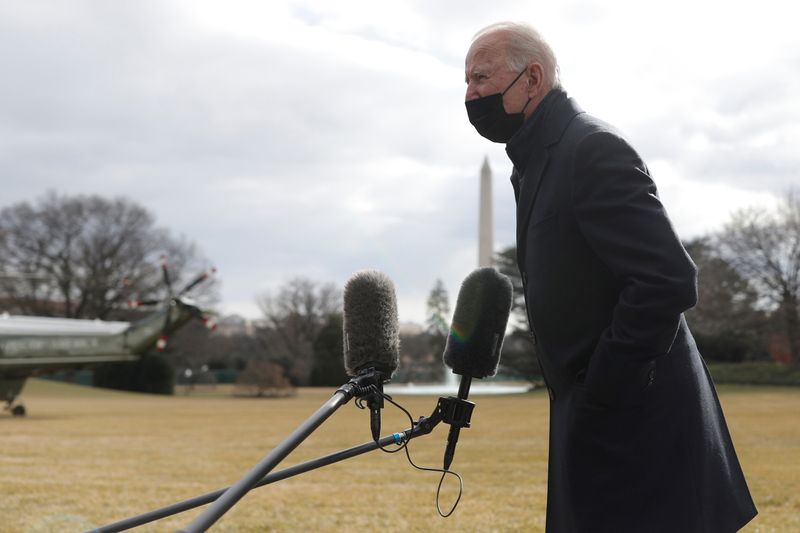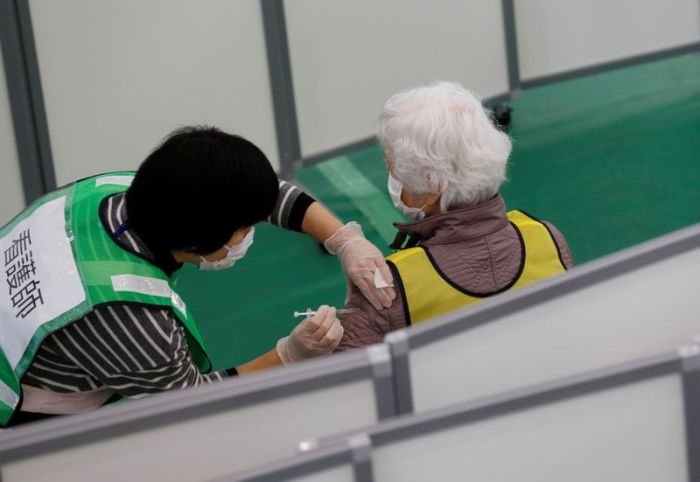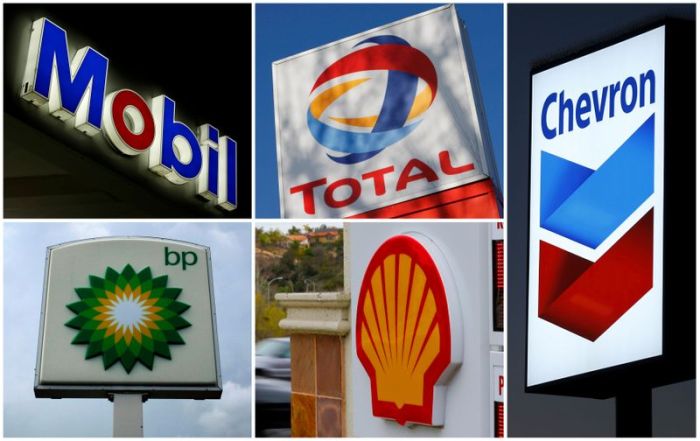WASHINGTON (Reuters) -U.S. President Joe Biden will maintain a tariff of 10% on aluminum imports from the United Arab Emirates, reversing Donald Trump’s move to end the levies on his last day as president, the White House said on Monday.
The Republican president had announced on Jan. 20 that he would exempt the UAE from the tariff on most aluminum imports, saying the two countries had reached a quota agreement that would restrict them.
The exemption was due to take effect on Wednesday.
Trump granted the exemption shortly after designating the UAE a “major security partner” and signing a deal to sell it 50 Lockheed Martin Corp F-35 fighter jets.
Last week, the Biden administration said it would temporarily pause that deal, and some others, to review them.
The White House decision late on Monday said the aluminum tariff would be more effective in protecting domestic producers than the “untested quota” announced by Trump.
“In my view, the available evidence indicates that imports from the UAE may still displace domestic production, and thereby threaten to impair our national security,” Biden said.
“I consider it is necessary and appropriate in light of our national security interests to maintain, at this time, the tariff treatment applied to aluminum article imports from the United Arab Emirates,” he said.
The UAE embassy in Washington had no immediate comment.
A White House spokeswoman said the reversal of Trump’s decision should not be seen as “derogative to the close diplomatic relationship between the United States and UAE”, but was part of a broader review of the previous administration’s trade policies, including tariffs.
“President Biden’s priority is to re-establish an intelligent process for foreign policymaking and trade policy based on deliberative economic analysis and a strategy that ensures a level playing field for the American worker to compete internationally,” the spokeswoman said.
Trump first imposed the tariff in 2018 to revive idled aluminum facilities, open closed smelters and mills, and boost domestic production by cutting U.S. reliance on foreign producers, Biden said, adding that need still existed.
He said the U.S. Commerce Department could have granted UAE producers exemptions if it found that domestic producers were not harmed. Instead, it had denied 32 of 33 exemption requests from UAE producers before Trump’s 11th-hour decision.
U.S. data showed a drop of 25% in aluminum imports from the UAE after the tariff, matched by a rise of 22% in domestic aluminum production through 2019, before the coronavirus pandemic began, the White House said.
Aluminum imports from UAE totalled $1.3 billion in 2019, according to data from the U.S. Trade Representative’s office.
(Reporting by Eric Beech; Editing by Cynthia Osterman, Clarence Fernandez and Kim Coghill)























